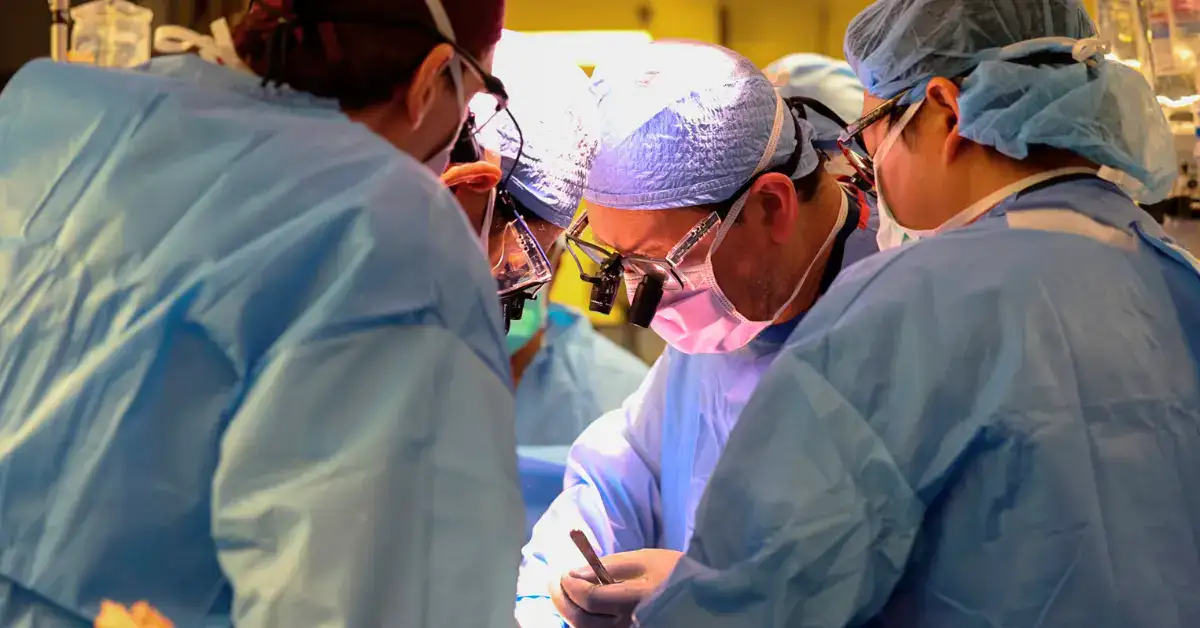In a groundbreaking medical feat, surgeons in Boston, United States, have accomplished the first-ever transplant of a genetically modified pig kidney into a living human patient, as reported on Thursday.
Medical Milestone: Pioneering Surgery at Massachusetts General Hospital
The pioneering surgery, conducted at Massachusetts General Hospital, marks a significant advancement in the field of transplantation. This four-hour procedure not only represents a leap forward in medical science but also holds promise for addressing the critical shortage of viable organs for transplantation.

Patient Recovery and Prognosis
The recipient of this groundbreaking transplant, Rick Slayman, a 62-year-old manager with the Massachusetts Department of Transportation, had been battling end-stage kidney disease. Following the surgery, Slayman is recuperating well and is anticipated to be discharged from the hospital shortly.
The Journey to Transplantation: From Human to Pig Kidney

Slayman’s medical journey has been arduous, having previously undergone a kidney transplant from a human donor in 2018. However, complications arose, leading to the eventual failure of the transplanted kidney, necessitating a return to dialysis in 2023. Faced with the daunting prospect of another transplant, Slayman, upon the recommendation of his medical team, opted for a revolutionary solution—a pig kidney.
Uniting Hope and Science: The Promise of Xenotransplantation
Xenotransplantation, the transplantation of organs or tissues from one species to another, offers a ray of hope to countless individuals awaiting life-saving transplants. With kidneys being among the most sought-after organs for transplantation, the successful implantation of a pig kidney into a human represents a monumental stride in overcoming organ scarcity.
Scientific Innovation and Genetic Modification
The pig kidney used in the transplantation was meticulously engineered by eGenesis Bio, a company based in Cambridge, Mass. Through advanced genetic editing techniques, including CRISPR-Cas9 technology, detrimental pig genes were eliminated, while specific human genes were introduced to enhance compatibility with the human body. Additionally, the deactivation of porcine endogenous retroviruses mitigated the risk of infection in humans.
Read also: Digital Detox: Top Reasons You Should Unplug to Boost Your Mental Well-being
Looking Ahead: A Vision for the Future of Transplantation
As medical science continues to push boundaries, the success of this pioneering surgery underscores the potential of xenotransplantation to revolutionize organ transplantation. With over 100,000 individuals in the United States alone awaiting organ transplants, initiatives like this offer renewed hope and promise for those in need.
In conclusion, the successful transplantation of a genetically modified pig kidney into a human signifies not only a triumph of medical innovation but also a beacon of hope for patients worldwide awaiting life-saving organ transplants.


